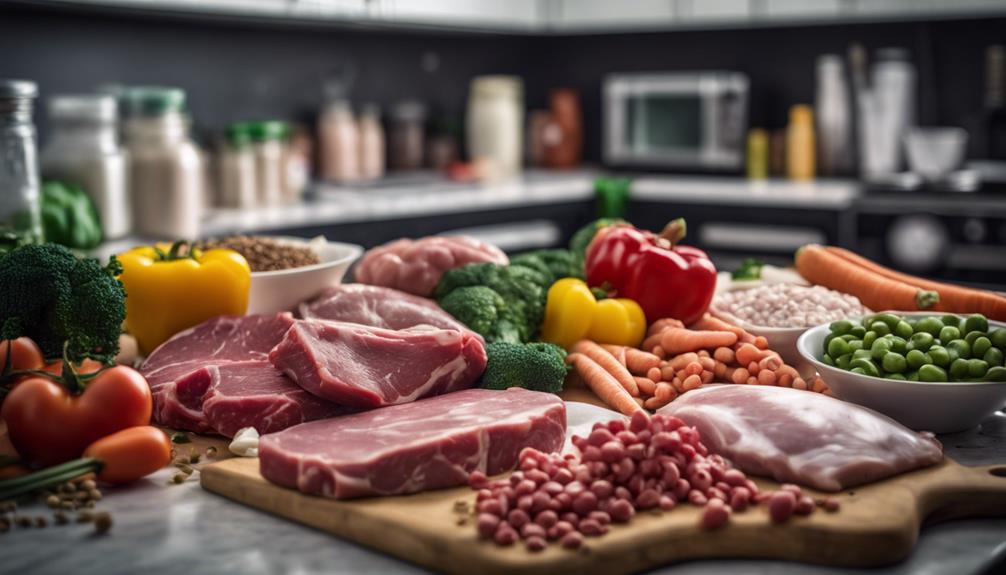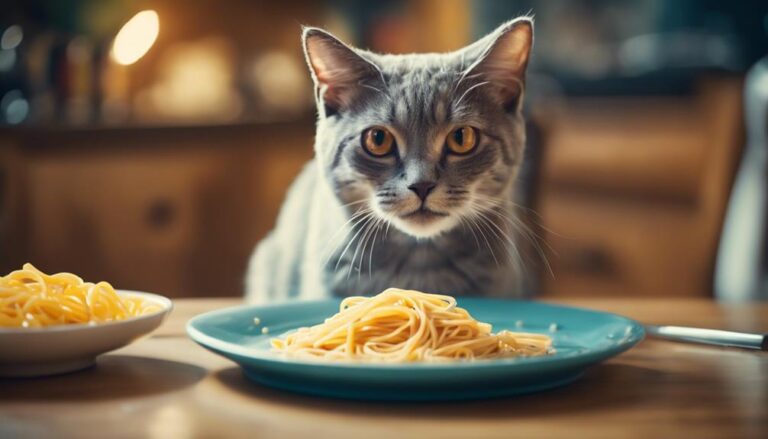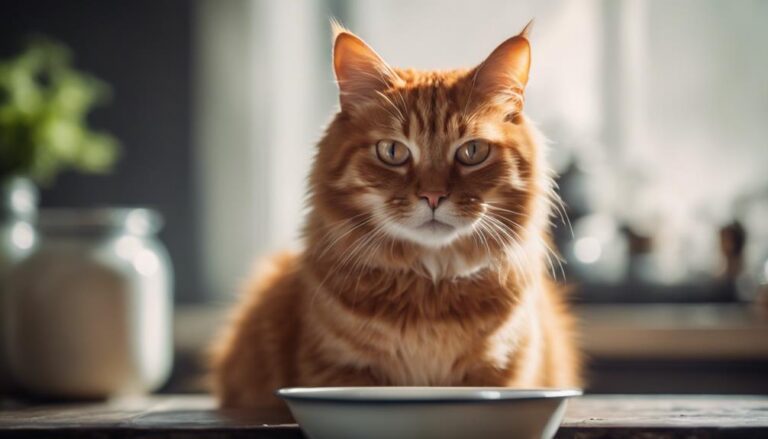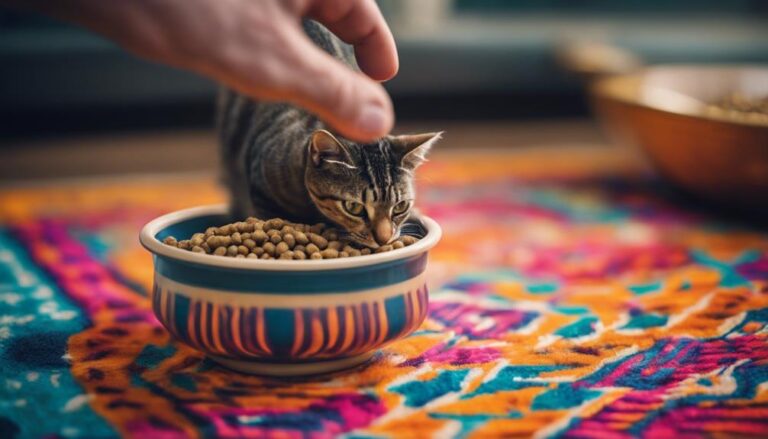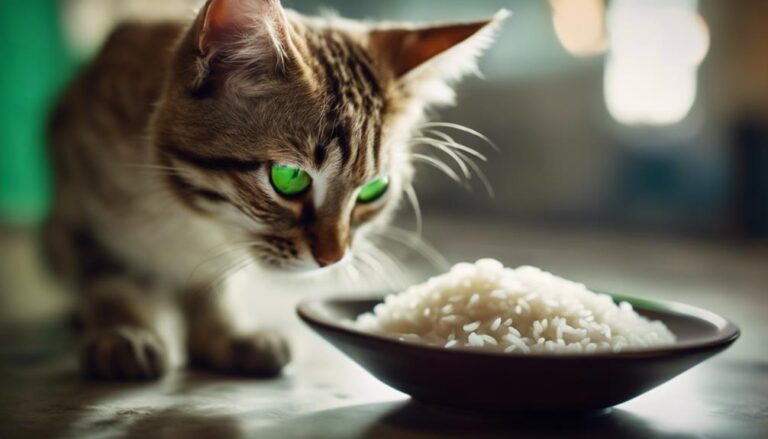When it comes to your cat's well-being, the food you choose plays a crucial role in their overall health and longevity. By exploring the world of homemade cat food, you open up a realm of possibilities to cater to your feline companion's unique nutritional requirements. From understanding the benefits of crafting your own pet food to navigating the intricate balance of essential nutrients, embarking on this culinary journey can pave the way to a healthier and happier life for your beloved cat.
Benefits of Homemade Cat Food
When feeding your cat homemade food, you gain better control over the ingredients, enabling customization to meet your cat's specific dietary needs. By preparing food at home, you can ensure that your cat receives healthy, high-quality ingredients without any artificial additives commonly found in commercial cat food. This promotes overall health and well-being for your feline companion.
Homemade cat food allows you to cater to your cat's individual health requirements, potentially reducing the risk of certain health issues. You can include high-quality proteins, essential amino acids, and necessary vitamins and minerals to support a shiny coat and healthy skin. Additionally, making your own cat food can lead to cost savings in the long run while ensuring that your cat receives a nutritionally balanced diet tailored to their needs.
Nutritional Requirements for Cats
When feeding your cat, it's important to understand their nutritional needs.
Cats require a diet rich in protein to help with muscle maintenance and development.
Essential amino acids, fatty acids, vitamins, and minerals are all crucial for your cat's overall health and wellbeing.
Feline Dietary Needs
Fulfilling feline dietary needs is essential for maintaining your cat's health and longevity. When feeding homemade meals to cats, it's crucial to ensure they receive all the essential nutrients required for their well-being.
Cats need a diet high in protein to support muscle maintenance and development. Taurine, a critical amino acid, is essential for heart health and vision in cats. Essential fatty acids are necessary for immune support and maintaining a healthy skin and coat. Moreover, cats require a balanced intake of vitamins like B, A, D, and E for overall metabolic health.
Adequate levels of minerals such as iron, zinc, and calcium play a vital role in ensuring your cat's overall well-being. Prioritizing these elements in your cat's diet can contribute significantly to their health and longevity.
Essential Cat Nutrients
To ensure your cat's health and longevity, providing essential cat nutrients is crucial. Cats rely on a diet rich in high-quality protein to maintain and develop strong muscles.
Taurine, an essential amino acid, is vital for heart health and optimal vision in cats.
Fatty acids play a crucial role in supporting the immune system and keeping your cat's skin healthy.
Essential vitamins such as B, A, D, and E are necessary for metabolism and overall well-being.
Additionally, minerals like iron, zinc, and calcium are essential for your cat's health.
When preparing homemade cat food, make sure to include these essential nutrients to promote a balanced diet and support your cat's optimal health.
Safety Guidelines for Homemade Cat Food
Before diving into preparing homemade cat food, ensure you consult with a veterinarian for guidance on meeting your feline's nutritional requirements.
Be mindful of using high-quality ingredients such as fresh meats and fish, and always cook them thoroughly to eliminate any harmful bacteria.
Remember to steer clear of toxic foods like onions, garlic, and chocolate to keep your cat safe and healthy.
Ingredient Quality Assurance
When preparing homemade cat food, always prioritize ingredient quality assurance to ensure the safety and health of your feline companion. Make sure all ingredients are of high quality and safe for cats, avoiding toxic items like onions, garlic, and chocolate.
It's crucial to thoroughly cook all meat and fish to eliminate any harmful bacteria. Consulting with a veterinarian can help ensure your homemade cat food meets all nutritional requirements.
To maintain a balanced diet, include a variety of protein sources, vitamins, and minerals in your homemade cat food recipe. By following these guidelines for ingredient quality assurance, you can provide your cat with a safe and nutritious diet for optimal health and longevity.
Proper Food Handling
How can you ensure the safety of your homemade cat food through proper food handling practices?
When preparing homemade cat food, it's essential to thoroughly cook all ingredients to eliminate harmful bacteria and ensure food safety.
Avoid using toxic foods like onions, garlic, and chocolate in your homemade cat food recipes to protect your pet's health.
Before introducing any new homemade cat food to your furry friend, consult a veterinarian to ensure it meets their nutritional requirements.
Opt for high-quality ingredients such as fresh meats and fish to provide your cat with optimal nutrition.
Nutrient Balance Awareness
To ensure the safety and nutritional adequacy of homemade cat food, prioritize maintaining a proper balance of essential nutrients like protein, taurine, and fatty acids. These components are vital for your cat's optimal health and longevity.
By being aware of nutrient balance in homemade cat food, you can help prevent deficiencies or excesses that may impact your cat's well-being. It's crucial to follow safety guidelines to avoid harmful bacteria and contaminants in the food. Additionally, steer clear of toxic foods such as onions, garlic, and chocolate to safeguard your cat's health.
Cooking ingredients thoroughly and avoiding raw meat are essential steps in reducing the risk of foodborne illnesses. Seeking guidance from a veterinarian on nutrient balance and safety practices is highly recommended for preparing wholesome homemade cat meals.
Best Homemade Cat Food Recipes
Crafting the best homemade cat food recipes requires a thoughtful selection of ingredients that prioritize your feline friend's health and nutritional needs. Homemade cat food recipes can be tailored to suit your cat's specific dietary requirements, ensuring a diet that supports a healthy digestive system.
By using fresh, high-quality ingredients, you can enhance your cat's overall well-being and avoid artificial additives and harmful fillers commonly found in commercial cat food. Homemade cat food preparation enables you to have better control over the ingredients, ensuring freshness and quality in every meal.
Additionally, opting for homemade cat food can lead to long-term cost savings compared to purchasing commercial options. Prioritizing your cat's health through homemade recipes is a rewarding aspect of cat care that can contribute to their optimal health and longevity.
Preparation and Handling Tips
When preparing homemade cat food, prioritize safe handling practices to ensure your cat's health and well-being. Follow basic food safety guidelines when dealing with raw meat for your cat's meals. Properly store and thaw raw meat to prevent contamination and spoilage, maintaining hygiene practices throughout the process. Address concerns about salmonella by taking necessary precautions while handling raw meat.
Consistent and safe handling of raw meat is essential to preserve the health benefits of homemade cat food. Remember to wash your hands thoroughly before and after handling raw meat, as well as disinfect any surfaces that come into contact with it. Use separate cutting boards and utensils for raw meat to prevent cross-contamination.
Consulting With a Vet
Before embarking on a homemade cat food journey, ensure to consult with a vet to customize a nutritionally balanced diet for your feline friend. Consulting with a vet is crucial as they can provide guidance on creating a balanced homemade diet tailored to your cat's age, weight, and health requirements.
Vets have the expertise to recommend specific ingredients and proportions to address any dietary deficiencies or health concerns your cat may have. Additionally, regular consultations with a vet can help monitor your cat's health and make necessary adjustments to their homemade diet for optimal well-being.
Vets can also offer advice on proper food handling practices, potential allergens, and food safety considerations when preparing homemade cat food. By working closely with a vet, you can ensure that your cat's nutritional needs are met through a well-rounded and balanced homemade diet, promoting their health and longevity.
Frequently Asked Questions
Do Vets Recommend Homemade Cat Food?
Yes, vets may recommend homemade cat food for tailored nutrition based on your cat's needs. It's a suitable option for specific health concerns or dietary restrictions. Consulting your vet is crucial to ensure homemade food meets your cat's requirements.
What Should I Feed My Cat for Optimal Health?
Feed your cat a diet rich in high-quality proteins, essential amino acids like taurine, and necessary vitamins and minerals. Avoid toxic ingredients, maintain balance, and consult your vet for personalized guidance. Your cat's health is a priority.
Which Homemade Food Is Good for Cats?
When feeding your cat at home, opt for high-quality proteins like chicken or fish. Ensure essential nutrients like taurine and vitamins are included. Avoid harmful foods such as onions. Customize recipes based on your cat's needs and consult with a vet for safety.
What Cat Food Keeps Cats Full Longer?
Including high-protein recipes and fiber-rich ingredients in your cat's diet can help prolong satiety. Balanced homemade meals with essential nutrients prevent hunger pangs. Avoiding fillers found in commercial food contributes to longer-lasting fullness. Monitor portion sizes carefully.

